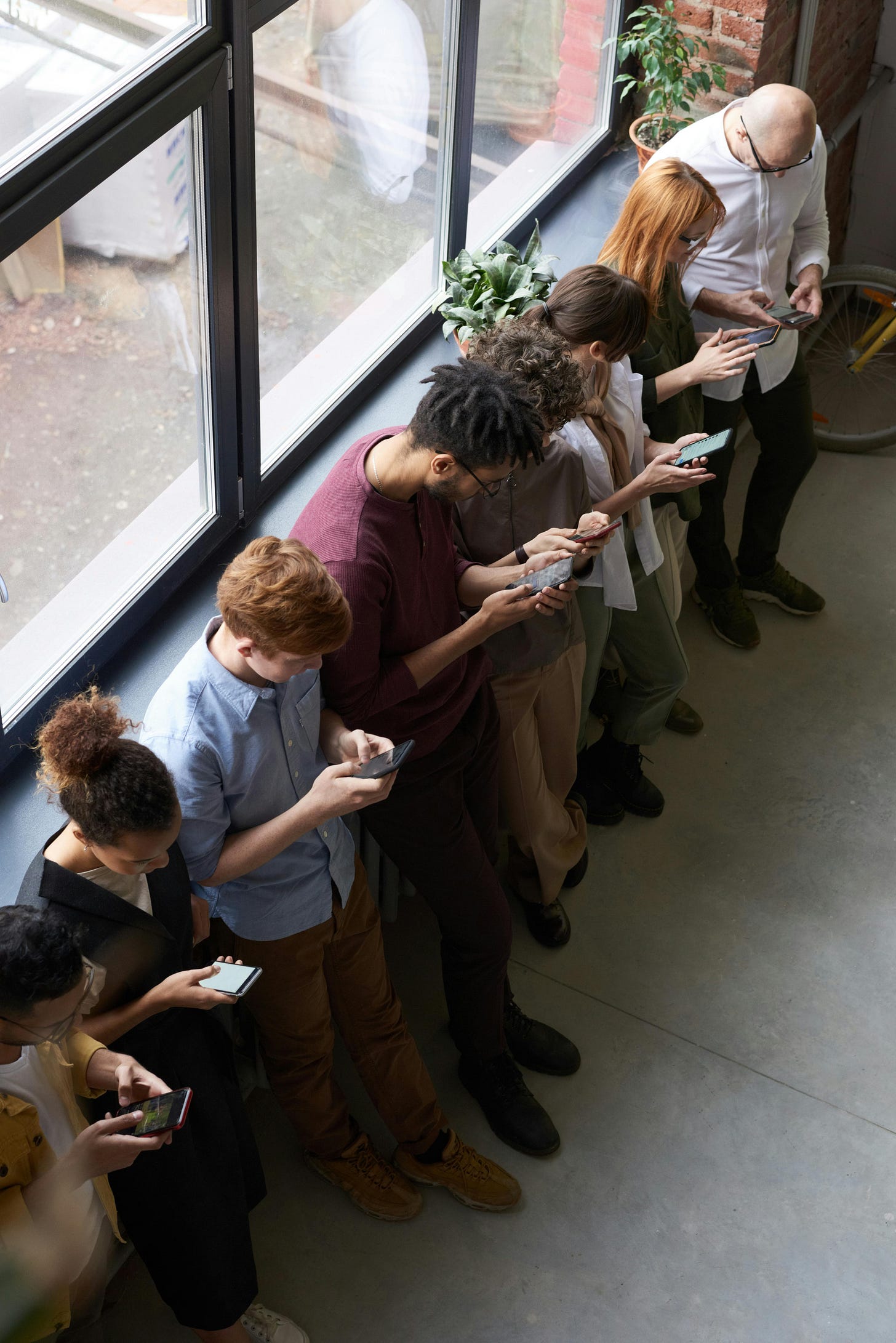How come we all feel so bad right now?
Two weeks ago I found myself with a rare Friday off. Since I didn’t have to be awake insanely early, I went to the concert alone on a Thursday night. Besides the receipt for my ticket, I realized there would be no trace of me going. I didn’t tell my friends or family, I didn’t buy any merch, and I paid for a beer in cash. Even the parking was free. I did have my iPhone with me so I guess in this current version of surveillance capitalism someone was tracking me while I was there. Hopefully, that data proves useful to someone's bottom line.
Despite having my phone on me, I didn’t take a picture or video, go live on Instagram, or Snapchat anyone. At nearly 30 years old, Snapchat probably puts you on some kind of watchlist.
I recently deleted Instagram from my phone. My account is still there but I’m trying my best not to be. I’ll check in now and then. Most likely when I’m procrastinating writing. I’ll see who’s hard launching a new relationship, and double tap on a photo of a friend’s rock climbing trip. Those are the moments that once would have been shared in letters, phone calls, emails, and texts. Now they’re made for Stories and maybe for the grid if you’re bold enough. Communication evolves and we should evolve with it, I’m not here to tell everyone to burn their digital identities. We shouldn’t, rejecting modernity isn’t practical or effective.
I grew up with the internet, but now I find that painful. What once felt like a tool for knowledge is like living inside a billboard. It’s attention as capitalism. It’s a sea of algorithms that promote the loudest and angriest for profit. It's an 11 billion dollar industry to advertise to children on social media. My passive scrolling is helping to addict the next generation to be nothing more than money sacks for big tech to leech off.
One thing I’ve always taken with me through my work is showing something isn’t the only choice I’m making when I’m crafting. When we tell stories, it’s also a choice not to show something. It’s an active decision that what is being told is the most important, more important than whatever else could be said. But what’s not shown is just as crucial. Absence is not nothing, but everything. The same is true for attention. In her book, How To Do Nothing, Jenny Odell writes, “To pay attention to one thing is to resist paying attention to other things; it means constantly denying and thwarting provocations outside the sphere of one’s attention.” It takes active engagement to put your attention where you want it. The amount we have to distract ourselves feels infinite. As if being alone with one's thoughts was the worst fate imaginable. But to allow our attention to be fragmented and unfocused allows for other forces to grab hold of it, and by extension, us.
This moment feels heavy. The world is literally on fire, the United States has cut off aid to the rest of the world, and Guantanamo is getting an extreme makeover, ICE edition. It’s easy to retreat into passivity and doom. But to resist succumbing to the dread takes our attention. I didn’t delete Instagram because I didn’t want to see my friends. I got rid of the temptation to substitute the mirage of closeness for the physical world. I’m real, and writing this is real, and you’re real too.
I don’t think it’s just the world spinning out that makes everything feel so bad. It's those endless distractions. It's as if all our diets became empty calories. We can eat as much as we want but we’re never satisfied. It’s a media diet of celery and Diet Coke. We can choose the bottomless pit or we can choose something more nourishing.
Odell goes on to write, “If it’s attention … that makes our reality, regaining control of it can also mean the discovery of new worlds and new ways of moving through them.” Everything feels bad right now. That’s not the most profound way to articulate this moment, but it's the only one I have right now. However, how we choose to focus our attention is how we can regain control.
Go to a concert, sweat in a dark room filled with strangers. Don’t do it for others to see, do it for yourself. Go fishing, read a book. Call a friend. Just don’t let yourself be consumed by the moment. I write this just as much for myself as you. Our attention can either be fragmented into a million pieces, like a kaleidoscope of terror, or we can put the work in so our attention stays where we want it. It can be focused on our communities. To shift your attention now while you can will only reward you down the line. Because to focus our attention in the end is resistance.
See you Thursday.


